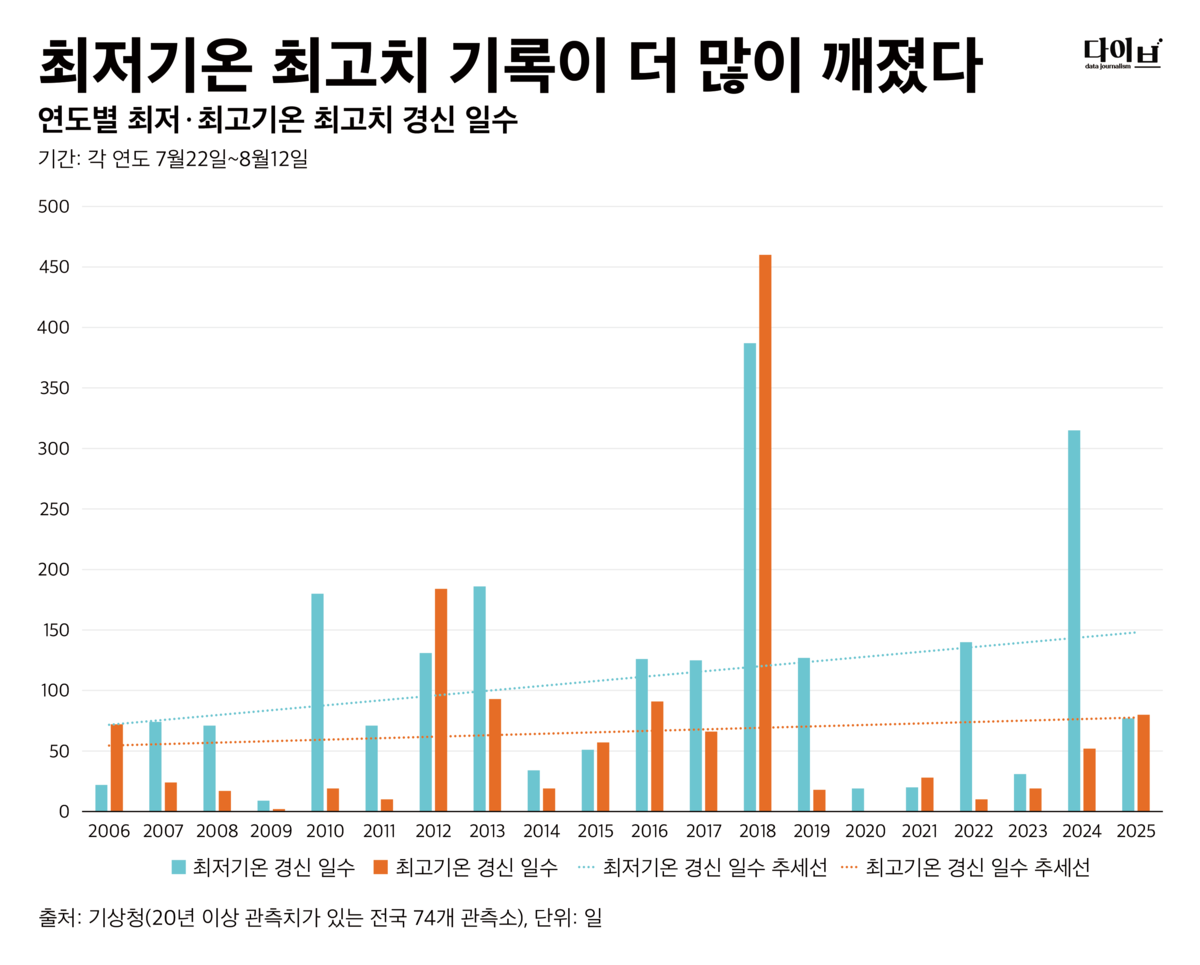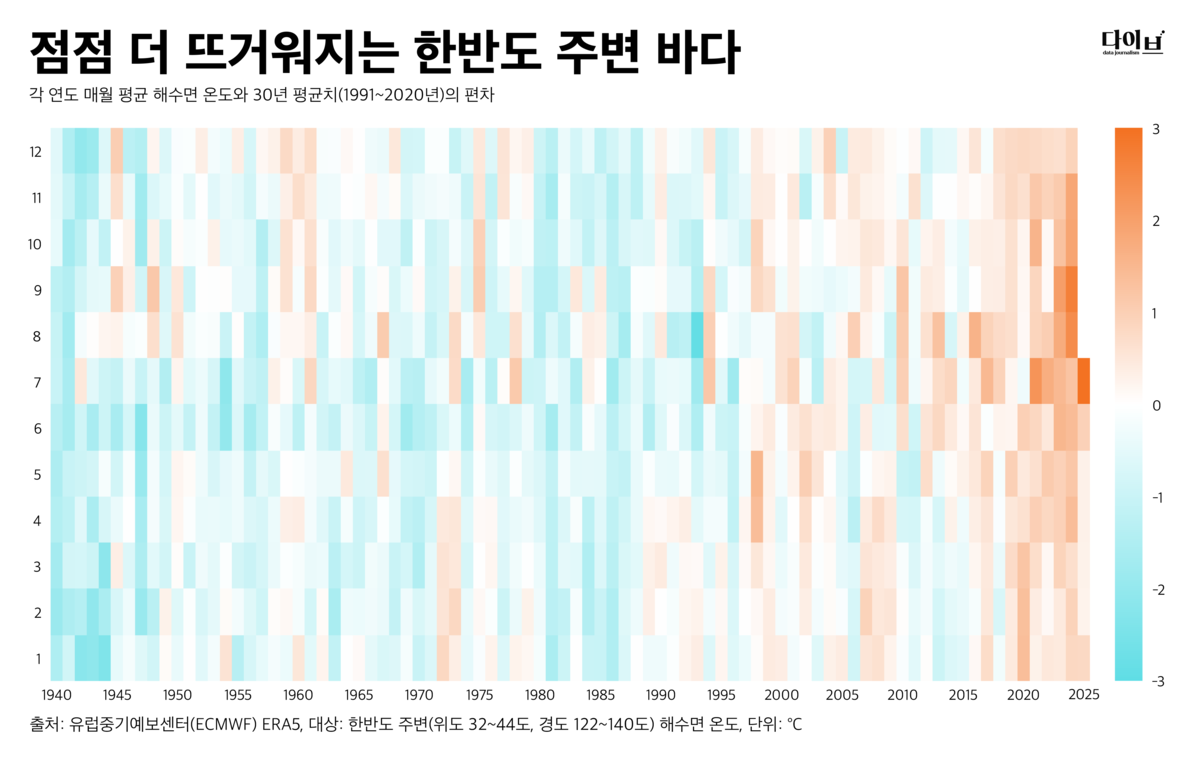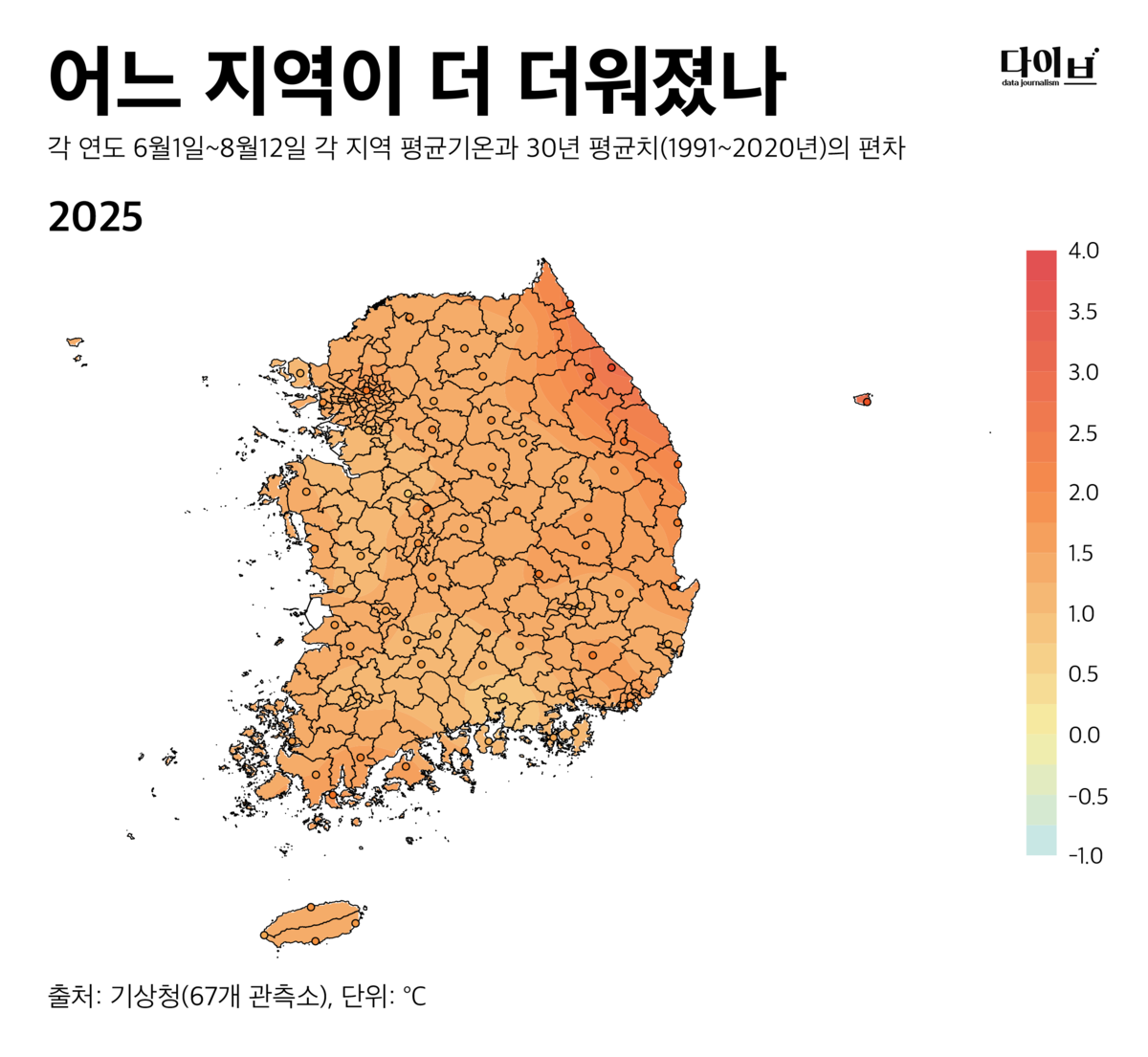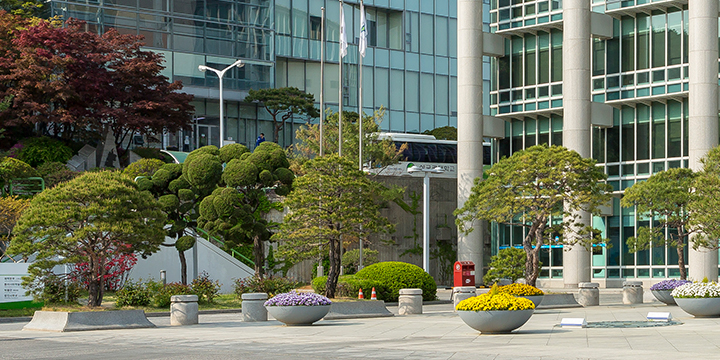“The sea boiled, even at night.”
Minseung Ki, a professor in the Department of Mathematics & Environmental Engineering at POSTECH, explained that the “Föhn effect” occurs in the Yeongdong region during summer due to the dominant southwesterly winds. The Föhn effect refers to air becoming warmer and drier as it crosses a mountain range. The warm air passing over the Taebaek Mountains heats the Yeongdong region in summer, making it naturally a warmer area.
The significant rise in temperatures this year is likely related to drought. As of August 10, the cumulative rainfall in Gangneung was 394.1 mm, about half of the average 766.6 mm for the same period. Professor Min noted that “drought is directly linked to heatwaves, and when there is less rain, there are fewer clouds, allowing more sunlight to reach the surface.” This illustrates that regions that are already warm can become even more vulnerable under climate change.



The trend is also visible in historical data. During the heatwaves in 1994 and 2018, Daegu, often called “Dafrica,” recorded the highest average temperatures nationwide, while Gangneung was outside the top 20. However, in 2024, Gangneung reached 27.3°C, ranking first and surpassing Daegu at 27.2°C. This year, Gangneung ranked second, while Daegu was sixth with 26.6°C.
Minimum temperatures have risen notably as well. Last year, 72 out of 74 observation stations recorded record-high daily minimum temperatures at least once, while record-high maximum temperatures occurred at only 17 stations. This year, 39 stations recorded record-high minimum temperatures and 35 stations recorded record-high maximum temperatures. Professor Min explained that “at night, the ground cools, limiting turbulence, so the air does not mix well vertically, allowing greenhouse gases to heat the surface more effectively. Rising minimum temperatures are therefore becoming a global phenomenon.”
Professor Min also highlighted the phenomenon of stratification in the oceans. Stratification occurs when the water layers do not mix, causing the surface water to heat more quickly even when the same amount of energy enters.










 ?php echo aslang('alert','is_login_service'); ?>
?php echo aslang('alert','is_login_service'); ?>




.png)











